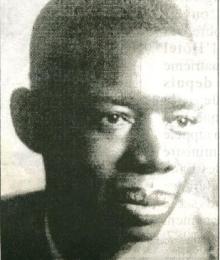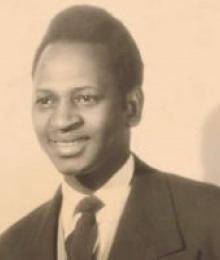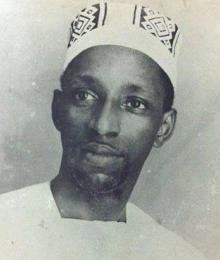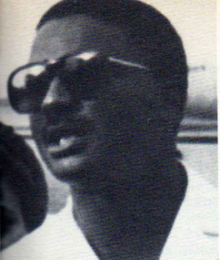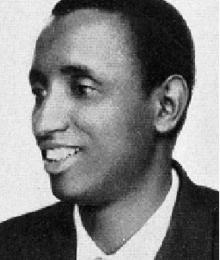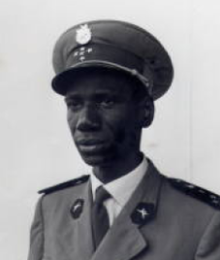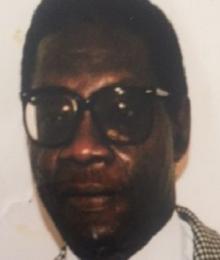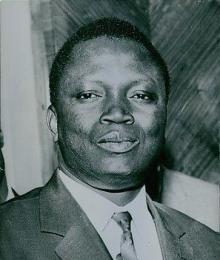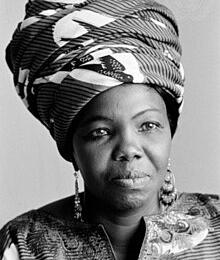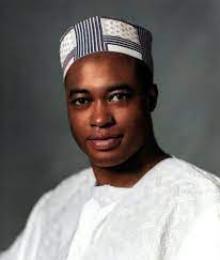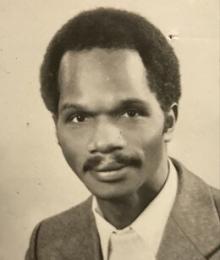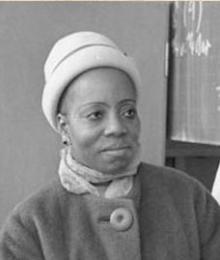
Loffo Camara (born circa 1925, died January 25, 1971) was a trailblazing politician and a symbolic figure of post-independence Guinea. Trained as a midwife, she became known for her early involvement in the Democratic Party of Guinea (PDG) and her activism for women's rights. Loffo Camara made history by becoming Guinea's first female minister, serving as Secretary of State for Social Affairs from 1961 to 1968. Her remarkable career also saw her play a significant role in the women's Pan-African movement, participating in numerous international conferences.
Despite her significant contributions, her career was abruptly cut short when she fell out of favor with Ahmed Sékou Touré's regime. Arrested in December 1970 during the Mar Verde operation, she was executed at Camp Boiro on January 25, 1971, becoming one of the most notable victims of political repression in Guinea. Her tragic story reflects both the progress and setbacks of the post-colonial era in Africa, making her a lasting symbol of the struggle for women's emancipation and democracy.
Introduction
Loffo Camara (1925-1971) was an iconic figure in Guinean politics and a pioneer of the women's Pan-African movement. As the first woman to hold a ministerial position in Guinea, she embodied the hope for the emancipation of African women during the post-independence era. Her remarkable journey from midwife to Secretary of State demonstrated her unwavering commitment to her country's development and African unity. However, her career was abruptly cut short by her execution in 1971, making her one of the most symbolic victims of Ahmed Sékou Touré's authoritarian regime.
Childhood and Education
Born around 1925 in Macenta, in southwestern Guinea, Loffo Camara grew up in a family that valued education. Her father, Balla Camara, was an African doctor, and her uncle was a military nurse. This medical background likely influenced her future vocation.
Loffo Camara received an exceptional education for a woman of her generation in West Africa. She attended the African School of Medicine in Dakar, where she graduated as a midwife in 1941. This training, rare for an African woman at the time, opened doors to a promising career in the medical and social sectors.
Professional Career
Upon graduation, Loffo Camara began her career as a midwife, serving in various regions of West Africa. Her first assignments took her to N'Guimi in Niger (1941-1943), followed by an unidentified post in 1943. In 1947, she returned to Guinea and was stationed in N'Zérékoré.
Throughout her career, Loffo Camara took on increasing responsibilities within the hospital structures where she worked. She notably served in Guéckédou and at the Ballay Hospital in Conakry, where she became actively involved in union activities alongside Dr. Ignace Deen. Her professional and union engagement provided her with solid experience in public health and social issues.
Alongside her medical career, Loffo Camara nurtured a passion for sewing. This skill would later play a role in her political career, helping her forge strong connections with the women of her party.
Committed Pan-Africanist
Loffo Camara's Pan-African activism began in the late 1950s, as the independence movement gained momentum across Africa. In July 1959, she represented Guinea at the founding congress of the Union of West African Women (UFOA) in Bamako. During this event, she delivered a memorable speech advocating for Africa's complete independence and unity.
Her dedication to women's Pan-Africanism continued with her participation in the Afro-Asian Solidarity Conference in Conakry in April 1960. There, she met Belgian pacifist feminist Isabelle Blume, a delegate from the Women's International Democratic Federation (WIDF).
In July 1961, Loffo Camara played a central role in the West African Women's Conference in Conakry, leading to the establishment of the Council of Women of the Union of African States. Her opening speech, published in the Guinean newspaper Horoya, expressed her vision of a free and united Africa:
"There can be no peace, justice, and freedom on earth without the unconditional end of colonialism, imperialism, and the oppression of women."
Her Pan-African commitment peaked in January 1962 when she drafted a report on the role of African women in nation-building for the executive office of the WIDF, which convened in Bamako. That same year, she contributed to the preparations for the Pan-African Women's Conference in Dar es Salaam, traveling to Togo, Niger, and Dahomey (now Benin).
Political Career
Loffo Camara's political involvement began in the late 1940s within the Democratic Party of Guinea (PDG), the Guinean branch of the African Democratic Rally (RDA). She initially worked in the southeastern forest region of Guinea and later in Conakry and Dinguiraye.
Her political ascent was swift. In November 1956, she was elected municipal councilor of Conakry. Two years later, in May 1958, she joined the PDG leadership as the delegate of women's organizations within the national political bureau.
Loffo Camara's political career reached new heights after Guinea's independence in 1958. She was appointed Secretary of the women's organization within the party, working alongside Mafory Bangoura, the organization's president.
The First Female Minister
In 1961, Loffo Camara made history as the first woman to join the Guinean government, becoming Secretary of State for Social Affairs, a position she held until 1968. Her appointment made her a pioneer not only in Guinea but also in the newly independent West Africa.
In her ministerial role, Loffo Camara utilized her experience as a midwife and her commitment to women's empowerment. She worked tirelessly to improve social conditions in Guinea, focusing on women's and children's rights.
Her passion for sewing also found a political application. She made clothing for PDG women and shared her skills, strengthening bonds within the party's women's movement.
However, Loffo Camara's ministerial career faced challenges. In 1962, during the Foulaya seminar near Kindia, she opposed the accumulation of positions and the entry of cadres into the political bureau without having climbed all party ranks. This stance put her at odds with President Ahmed Sékou Touré.
In 1967, during the PDG's 8th Congress, Sékou Touré reduced the number of government members from fifteen to seven. Loffo Camara was among those excluded, marking the beginning of her political decline.
Circumstances of Her Death
Loffo Camara's downfall accelerated in December 1970 when she was arrested following Operation Mar Verde. This operation, conducted by Portuguese ships on November 22, 1970, aimed to free Portuguese PAIGC prisoners and overthrow Sékou Touré's regime.
Accused of complicity in the plot, Loffo Camara was imprisoned at the notorious Camp Boiro, a symbol of Sékou Touré's repressive regime. Reports indicate that she, like other prisoners, endured torture and inhumane treatment.
On January 24, 1971, Loffo Camara was transferred from Kindia to Camp Boiro. The following day, she was executed by a firing squad, the only woman among the condemned. Her body was buried in a mass grave, denying her family a proper farewell.
Legacy
Over fifty years after her death, Loffo Camara remains an emblematic figure in Guinean political history. Her exceptional journey — from midwife to the first female minister — symbolizes African women's struggle for empowerment.
Despite her tragic end, her legacy endures. Her story reminds us of the sacrifices made by those who opposed authoritarian regimes.
Today, voices are calling for Loffo Camara's rehabilitation and the return of her remains for a proper burial. Her story resonates as Guinea and Africa continue to face governance and human rights challenges.
Conclusion
Loffo Camara's life illustrates the hopes and disillusionments of post-independence Africa. She symbolizes both the progress in women's rights and the authoritarian excesses that marked certain African regimes. Her legacy inspires future generations to uphold democracy, gender equality, and human rights.











